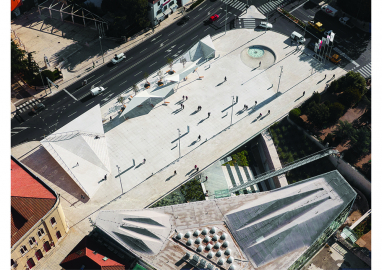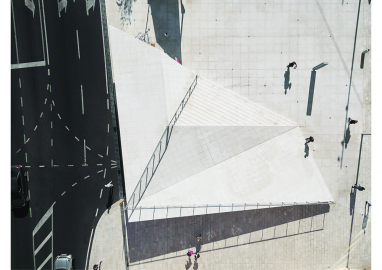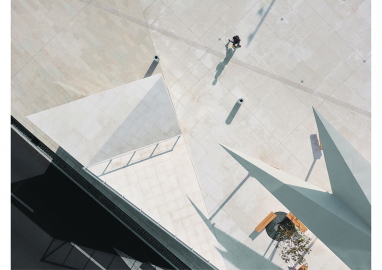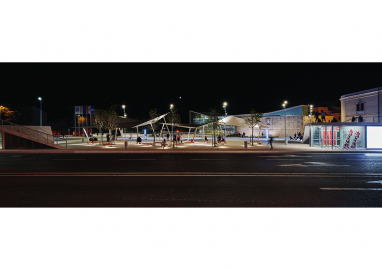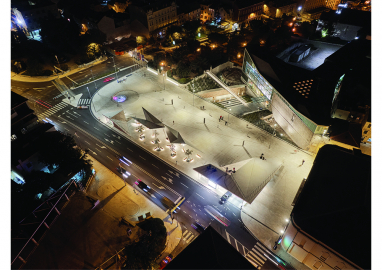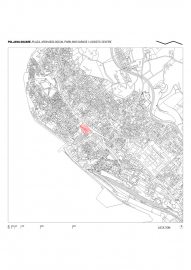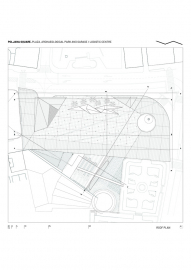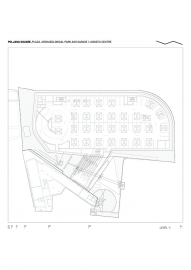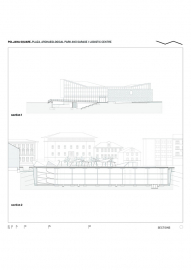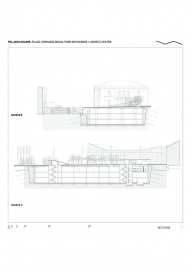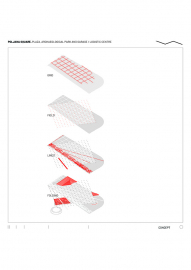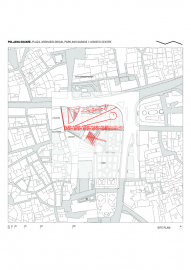Poljana Square
The new Šibenik main square with archaeological park and a garage / logistics centre underneath is designed
as an integrated urban, social and infrastructural field setting an open dialogue between the medieval, modern and contemporary city, creating a vast community of astonishing potential that holds the sky aloft.
Poljana /meaning field/ was originally a flat summit of a rocky promontory right in front of the Medieval city gate. Its specific spatial configuration, a large platform as it were, is the consequence of subsequent levelling campaigns over the centuries, with the definitive outline taking shape in late 1800s.
In the contemporary city structure, the Poljana square is an unframed dynamic space, intersected with different routes and grids, a central connecting mechanism for the city’s public places.
The site programme integrates the archaeological park with the social zone and infrastructural logistics centre underneath. Spatial folds form places of social gathering: open tribunes and stages, bridge, canopy and fountain. Urban lines create tensions and dynamics in the platform while stone networks with infrastructural boxes enable flexible organisation of the field.
The Poljana square is designed as a continuous three-dimensional urban platform (field) without any obtrusive solid volumes, which accommodates various social events and mediates between historical and modern urban artefacts. The proposed strategy is open-type, establishing a dialogue in the indefinite field of the modern city and, while preserving the existing identity, directs future use towards new scenarios in a discrete transformation.
The surface of the square superimposes two networks, a classic grid /towards the theatre/ and a flexible square field of points /directed by the logic of the library building and historical ramparts/ with spatial accents in corners which introduce the surrounding features into the space of the Poljana. The surface is activated by movement directions recognized in everyday life and history – and in meeting places along them. In network intersecting areas, spatial folds form extended, raised surfaces on the roofs of the pavilions. The canopy, a floating dynamic artefact, provides a link and defines the spatial boundary of the square, thus creating a dialogue and continuity of forms in the new age.
The design consists of an underground and an above-ground part integrated by a modern interpretation in traditional Mediterranean and industrial materials. The underground structure has facility designation /garage and logistics centre/, with reinforced concrete construction and industrial floors. The above-ground section is a modern urban deck paved with Mediterranean white stone, with steel fences and constructions /bridge, canopy, folds…/. The structure of the canopy, pre-manufactured in the Split shipyard, was designed to run an active formal dialogue with the modernist library buildings.
The flexibly organized infrastructural field visible in the square area, composed of connection points /urban box elements/ for the reception of urban fixtures, allows for easy creation of various event scenarios and artistic performances.
The underground logistics centre includes a mobility management centre, charging stations for electric vehicles and revitalized old town and island supply area. The space is an integral part of the overall EU project Integrated Mobility in the City of Šibenik.

